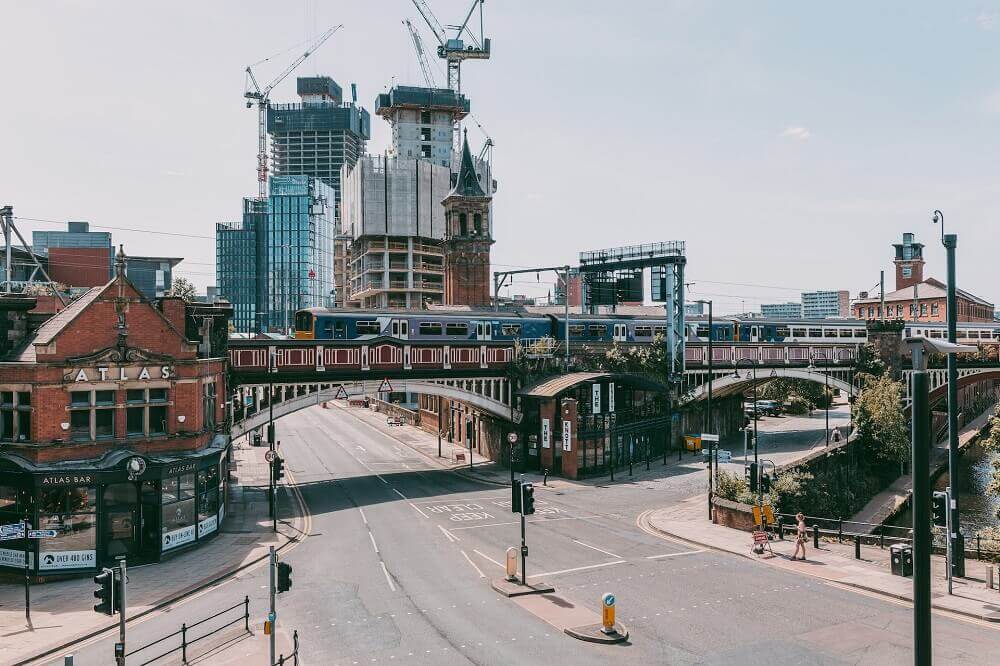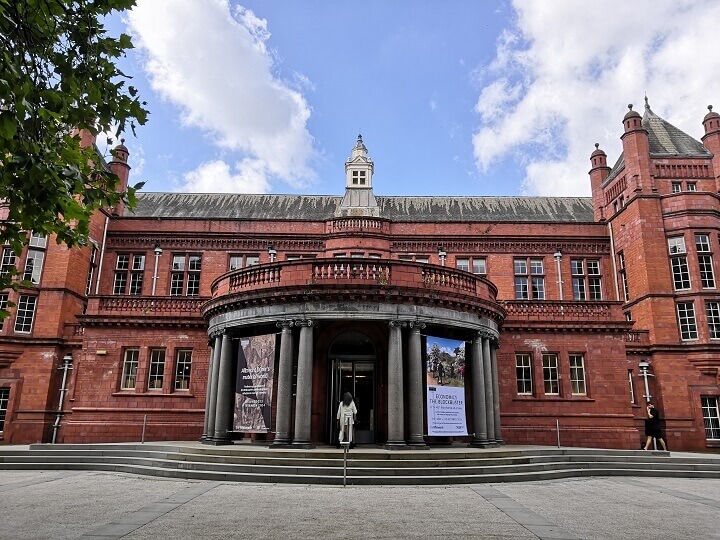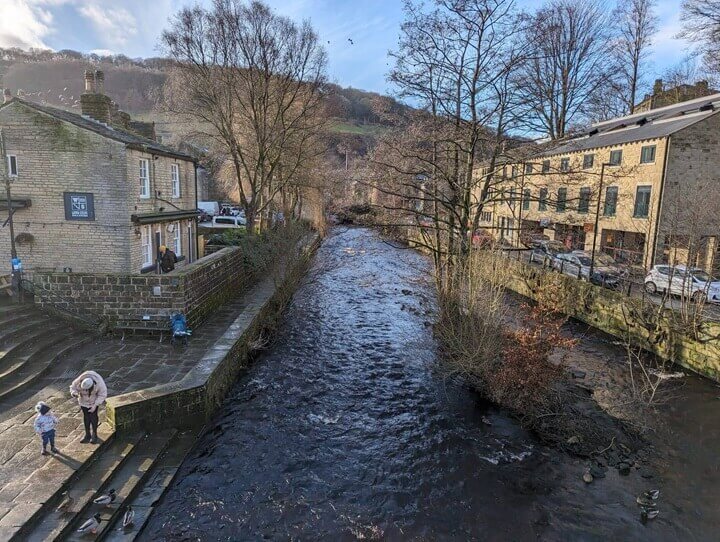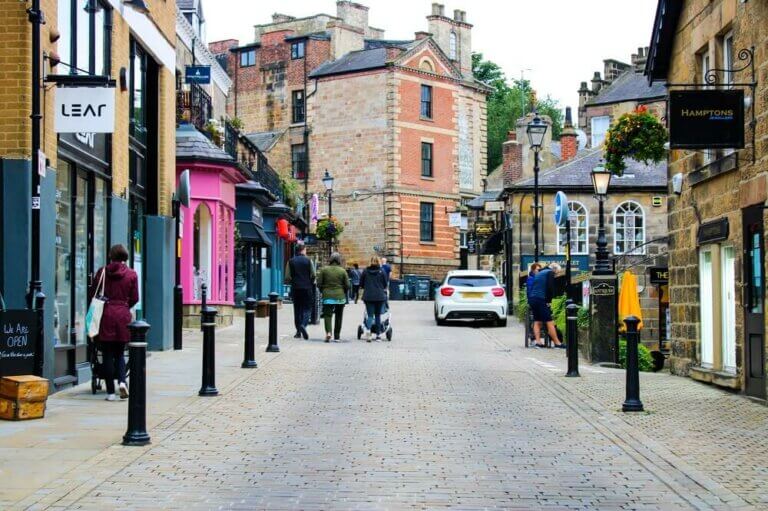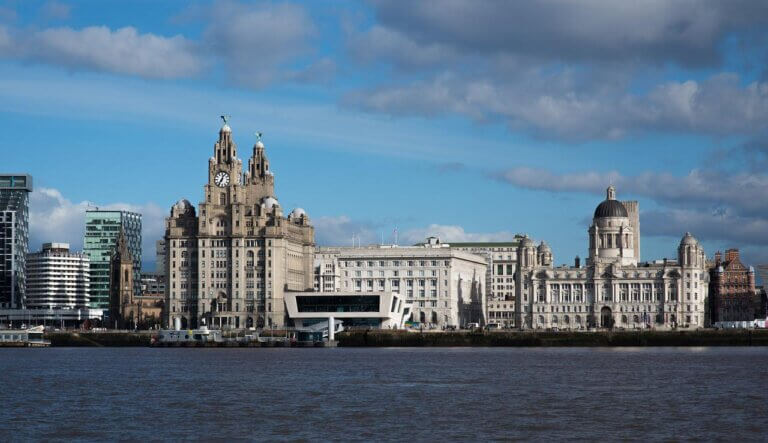Is Manchester a Good Place to Live? A Local’s Guide to Living in Manchester
Wondering if Manchester is a good place to live? This comprehensive guide uncovers the ins and outs of living in Manchester.
Manchester boasts a wealth of history, attractions and fun things to do. Like any other city, it has its downsides. However, it also has a lot going for it.
Discover what makes Manchester a great place to live, explore the best areas to move to, learn about the cost of living, and more.
I’ve been living in Manchester since 2019, originally moving here for my husband’s job. Although Manchester wasn’t a city that was initially on my radar, its reasonably priced housing and strong growth sparked our interest.
If you’re contemplating a move to Manchester, either from a different part of the UK or abroad, this guide is designed to help you decide whether this city aligns with your lifestyle and expectations.
Disclosure: Some of the links below are affiliate links, which means that at no additional cost to you, I may earn a small commission if you click through and make a purchase. Please note, I only recommend products and services that I know and love. Read full Privacy Policy here.
Manchester: Brief History
Located in North West England, Manchester is one of the UK’s largest cities, both by population and economic influence. The Greater Manchester area ranks as the country’s second-largest urban conglomeration, housing over 2.5 million people.
Manchester rose to prominence in the 19th century, amid the Industrial Revolution. Through technological innovations in production and transportation, the city rapidly transformed into the world’s first truly industrial metropolis, complete with bustling mills, factories, and warehouses.
Yet, rapid industrialisation carried its own drawbacks. Regular workers routinely experienced appalling living and working conditions. It’s no wonder that Manchester became the birthplace of numerous political movements aiming to rectify these power imbalances. One prominent example is Friedrich Engels, a key figure in the development of communism, who once resided in the city.
As the British Empire waned in the 20th century, many of its industrial cities, including Manchester, suffered a significant downfall. Manufacturing shifted overseas, leaving a void that wasn’t immediately filled.
However, the situation began to improve towards the end of the 20th century. Major redevelopment initiatives instigated Manchester’s evolution into a post-industrial city.
Although the aftermath of decades-long decline and lack of investment is difficult to overcome, the city has emerged as a dynamic hub with new industries, a burgeoning population, and economic growth.
Is Manchester a Good Place to Live? An Overview
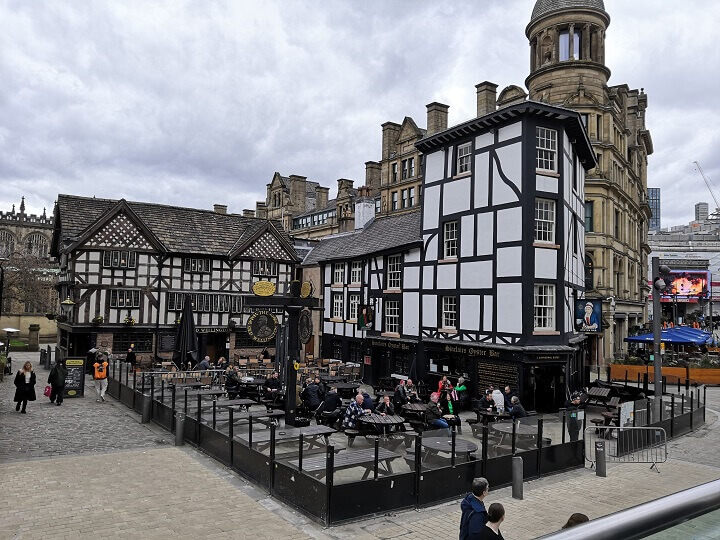
So, having explored some historical background, the critical question remains – is Manchester a good place to live? Personally, I think that Manchester is one of the best cities in the UK to be in right now.
Firstly, in terms of employment opportunities, Manchester stands out as one of the top contenders outside London. With recent investments, the city has become a flourishing hub for emerging sectors such as tech, life sciences, and media. Numerous national and global corporations, including BT, PwC, and HSBC, have chosen to set up offices in Manchester.
Secondly, compared to other UK regions, Manchester exudes a vibrant, youthful vibe. With multiple universities within the city, many graduates opt to start their careers here, fostering a youthful demographic. This has led to the proliferation of hip businesses and events catering to these young professionals.
When it comes to recreational activities, Manchester has a strong offering. From its burgeoning culinary scene and lively nightlife to unique boutiques and art galleries, there’s always something to keep you busy in this city.
Relative affordability in housing also contributes to Manchester’s appeal. While some may complain about the high property prices, a comparison with South East England quickly reveals that Manchester offers significantly better value for money.
However, it’s important to note that prices are ever-evolving, and it wouldn’t surprise me if the prime areas of Manchester eventually reach price levels comparable to the capital.
Finally, Manchester’s proximity to stunning natural landscapes such as the Peak District, the Lake District, and North York Moors National Park is a boon for those seeking weekend getaways from the city’s hustle and bustle.
These are just some of the things that make Manchester a great place to live. We will shortly delve into some of these aspects in more detail.
Is Manchester Safe to Live?
It is worth noting that Manchester has gained a reputation for being a city with a higher crime rate.
According to Statista, Manchester recorded 128.9 crimes per 1,000 population, which is nearly 40% higher than the UK average of 93.6 crimes per 1,000 population in 2022/2023. These statistics encompass various types of crimes, ranging from antisocial behaviour and drug use to armed robberies and homicides.
These relatively high numbers can be attributed to the socio-economic composition of the city and decades of inadequate investment. Although there have been changes in terms of financial resources, they cannot fully undo the past damage.
However, it is important to remember that these statistics do not imply that the whole of Manchester is not a safe place to live in. Like any other city, there are areas that are generally safe, while others are best avoided. We will discuss these areas shortly.
From a personal standpoint, after living in Manchester for nearly four years, I feel relatively safe while navigating the city. While I have encountered instances of threatening behaviour from homeless individuals, such incidents are extremely rare.
It is worth noting that these experiences are not unique to Manchester or the UK. I’ve had similar experiences while living in central Auckland, New Zealand, a city also grappling with homelessness.
Regardless of your location in the world, it is important to exercise the same levels of caution.
Cost of Living in Manchester
Let’s delve into the specific costs of living in Manchester. Ultimately, your personal costs will depend on your lifestyle preferences. However, this guide will give you a rough idea of how much you will need to spend on the basics.
Manchester Housing Costs
According to Zoopla, the average sold price for a property in Manchester is £248,768, significantly below the UK average sold price of £337,921 (as of February 2024).
The cost of housing can fluctuate significantly, largely influenced by the type of property you’re interested in and the desirability of the area. There are area in Greater Manchester where the average property price can be nearly three times the city average.
Currently, the average monthly rent Manchester is around £1,755. However, the amount of rent you pay will depend on the type of property you’re living in and its location within the city.
For further information on housing costs, check out the following websites:
- Rightmove
- Zoopla
- Spare Room (for house shares)
I would speculate that the growing desirability of Manchester as a place to live will lead to a further increase in housing costs, for both buyers and renters.
If you’re committed to relocating and purchasing a house in Manchester, now is the time to do that. You are likely to see a good return on your investment if you buy in the right area.
Bills
While living in Manchester or anywhere in the UK, you’ll typically be responsible for the costs of utilities like electricity and gas, water, council tax, broadband, and a TV License.
Your expenditures will largely depend on your household’s consumption habits. For instance, a family of four residing in a five-bedroom house would generally have higher usage of electricity and water than a single person living in a studio apartment.
Added complexities, such as price caps on energy costs and quality of housing, can make the task of estimating average bills somewhat challenging.
However, here are some approximate figures for your annual bills:
- Energy bill (electricity and gas): £2,500
- Water: £422
- Council tax: £1,390.79
- Broadband: £360
- TV License: £159
When you are moving into a new place, be sure to find out the council tax band assigned to your property by your local council.
Groceries
The cost of groceries can vary widely depending on individual buying habits and dietary preferences. For instance, my husband and I typically spend around £100 per week for groceries for the two of us.
Some households may budget less, while others might spend more on their weekly shopping. Our grocery list often includes plenty of fresh fruit and vegetables, along with more premium meats and fish, which contribute to our overall spend.
To help you get an idea of prices, here’s a snapshot of the typical costs for some grocery staples:
- Milk (4 pint) – £1.45
- Sugar (1kg) – £1.19
- Salt (750g) – £0.65
- Bread (800g) – £1.30
- Eggs (12) – £2.50
- Chicken breast fillets (600g) – – £4.70
- Beef mince (500g) – £3.75
- Tea (240 tea bags) – £4.60
- Instant coffee (supermarket brand) – £3.00
- Cooking oil – £2.00
- Apples (pack of six) – £1.00
- Bananas (pack of seven) – £1.19
- Cheese (400g) – £3.40
- Brown onions – 33p each
- Carrots (500g) – £0.35
- Broccoli – £0.75 each
You can check how much your favourite foods would cost on the websites of the main supermarket chains, such as Tesco or ASDA.
Dining Out
Manchester has a thriving dining scene, but how much would it cost to take advantage of it? Below are some estimated costs for a two-person meal at various price points:
- Budget: £30 – $60
- Mid-range: £60 – £150
- Luxury: £150+
The average cost for a pint in Manchester is around £3.96, while a glass of house wine typically goes for approximately £5.00. An average cocktail costs about £9.00.
Culture & Entertainment
The vibrant culture and entertainment scene with plenty of choice make Manchester a great place to live for those who enjoy the arts. From museums and art galleries to live music and theatre, there is something for everyone.
Here’s a rough estimate of what you might expect to pay for popular cultural and entertainment activities:
Museums and Art Galleries: Generally, entry is free in national museums, but temporary exhibitions might occasionally charge an admission fee. Some museums may charge a small entry fee in the region of £4.
Cinema: Ticket prices typically start from around £8 per person.
Concerts: Prices can range widely, from £30 to £200, depending on factors such as the venue and the popularity of the performing act.
Theatre: Expect to spend anywhere from £20 to £150, with costs varying based on the nature of the show and your choice of seating.
Living in Manchester: Best Areas
Let’s explore some of the top neighbourhoods to live in Manchester. In making these selections, I have considered the quality of life they provide, as well as their connectivity to the rest of the city and safety.
Ancoats & New Islington
The neighbouring districts of Ancoats and New Islington provide an ideal setting for those seeking a vibrant city life experience.
Situated in the northeastern section of Manchester city centre, these districts appeal primarily to young professionals. Ancoats in particular has earned a place on Time Out’s list of the top 50 coolest neighbourhoods worldwide.
Once a thriving industrial area, these districts faced a period of dereliction following the end of manufacturing activities. However, the recent decades have seen a transformation as disused mills were repurposed into apartments and offices. The rejuvenated spaces are now home to an array of craft beer bars, independent cafes, and trendy restaurants.
Just a brief walk from Ancoats and New Islington, you’ll find the vibrant Northern Quarter, renowned for its excellent bars, cafes, and unique shops. Additionally, the broader amenities of Manchester City Centre are easily accessible on foot.
As for safety, it’s crucial to note that as Ancoats and New Islington are urban areas in the process of gentrification, the usual safety considerations for city living apply.
Having lived on the outskirts of these districts for several years, I personally think they are a great choice for those who love urban environments. They offer the perfect blend of convenient access to the city centre for work and a bustling local scene right on your doorstep.
The average property price in these areas is £273,013 (Zoopla, February 2024). The stock is mostly flats, but some developers do occasionally build townhouses.
Didsbury
Didsbury is a safe, affluent suburb situated south of Manchester City Centre. It is a popular choice for both young professionals and families and caters well to both groups.
Blessed with leafy surroundings, this neighbourhood offers a convenient commute to central Manchester via the Metrolink, with the journey taking slightly over 30 minutes.
There are three main parts to Didsbury with their own characters. East Didsbury is a popular choice for families, given its selection of quality schools and easy access to green spaces.
On the other hand, West Didsbury, centred around Burton Road, houses an array of independent bars, cafes, and shops. This area draws young professionals, with many of the Victorian townhouses that grace the nearby streets converted into apartments to meet this demand.
Didsbury Village, located between the East and West Didsbury Metrolink stops, provides a combination of chain and independent eateries and pubs, along with essential services like bank branches and pharmacies.
The average property price in Didsbury is currently at £413,516 (Zoopla, February 2024). If you have your heart set on Didsbury, be cautious of agents attempting to sell properties in the adjacent, less desirable areas of Withington or Burnage, under the guise of Didsbury.
Altrincham
Situated in the borough of Trafford within Greater Manchester, Altrincham is a desirable residential area ideal for those seeking efficient transport links, a lively town atmosphere, and proximity to the countryside.
Renowned as one of the safest and most affluent regions in Greater Manchester, Trafford is home to some of the country’s top-rated schools, making it a preferred choice among families.
Altrincham enjoys excellent connectivity to Manchester city centre through both rail and Metrolink services. The latter provides a quick 30-minute commute, making it the more efficient choice.
The town centre of Altrincham is self-sufficient, offering a blend of independent and chain stores, eateries, and two cinemas. A notable attraction is Altrincham Market, a hub for independent food and homeware vendors.
Moreover, the town provides easy access to charming parks and countryside. My personal favourite is the National Trust’s Dunham Massey, which encompasses a stately period house, stunning gardens, and a deer park – an ideal destination for a day out.
Altrincham’s diverse housing options cater to various lifestyle needs, from centrally located apartments to spacious townhouses situated on tree-lined streets.
The average property price in Altrincham currently stands at £414,460 (Zoopla, February 2024). Although this is a significant price by Manchester standards, it offers excellent value for those relocating from the South East.
However, do exercise caution as some agents may attempt to sell properties in the neighbouring village of Timperley under the label of Altrincham. These two areas differ in character and price points, so be sure to confirm the location before deciding.
Living in Manchester: Areas to Avoid
As with any city, there are certain areas within Manchester that might not be the most desirable due to factors such as economic deprivation, deterioration, and heightened crime rates. Here are the ones I highly recommend avoiding if you are looking to move to Manchester.
Longsight
Longsight, an inner-city area in Greater Manchester, has some of the highest deprivation levels in the region. Unfortunately, heightened levels of poverty often correlate with higher crime rates. Longsight experiences higher incidences of crime, including burglary, theft, and antisocial behaviour, compared to other parts of the city.
Moss Side
Moss Side is another inner-city area of high deprivation that is best avoided. It has been plagued by gang crime for decades. The area has a high crime incidence rate including gang violence, drug dealing, and antisocial behaviour.
Moston
Situated to the northeast of Manchester city centre, Moston is an area known for its elevated crime rates. The area has unfortunately gained a reputation for its instances of violence, drug-related activities, and burglary.
Employment Opportunities & Average Salaries
Typically, areas with lower housing costs also offer lower salaries, and Manchester is no exception. According to Payscale, the average salary in Manchester stands at £32,000 a year (as of February 2024), compared to London’s average salary of £42,000.
I have seen much higher salaries quoted on other internet sources. However, the £32k figure appears more realistic, especially when taking into account a variety of job roles and industries.
While evaluating average salaries provides a useful starting point, their utility is somewhat limited. It’s crucial to understand the potential earnings specific to your career path, level of seniority, and industry.
I recommend conducting research into salaries directly relevant to your profession. Remember to check multiple sources, as the information can differ.
Once you have an estimate of your likely earnings, you can more accurately evaluate how living costs will impact you and how much disposable income you’ll have.
Getting Around Manchester: Transport
Manchester has a good transport network that caters to different needs. No city is perfect when it comes to public transport, but I think that Manchester has a relatively efficient system. For the most up-to-date information on routes and fares, check out the Transport for Greater Manchester website.
Tram. Manchester is home to the UK’s largest tram network, Metrolink. Personally, this is my favourite mode of transport in the city. It links many areas of Greater Manchester to the city centre. The trams are modern, generally efficient, and fares vary between £1.40 and £4.60 for a single adult journey, depending on the distance travelled. Additionally, travel cards are available for frequent commuters.
Bus. Manchester is also covered by an extensive bus network, run by a variety of operators. In my experience, buses are more suitable for shorter journeys as they generally travel slower compared to trams. However, for certain areas within Greater Manchester, buses are the only viable link to other parts of the city. Single journey fares are priced at £1 for children and £2 for adults within Greater Manchester. The cost of multi-trip tickets, however, differs from one operator to another.
Trains. Some parts of Greater Manchester are served by a train network. While some stations receive only a few trains per hour, potentially causing commuter inconvenience in case of a missed train, those located slightly further from the city often find trains to be their most optimal travel option.
Airport. Manchester Airport, one of the UK’s busiest international hubs, offers excellent connectivity to major cities within the UK, popular European locations, and even some destinations further afield. If direct flights to your chosen location are unavailable, international airlines such as Emirates and Qatar Airways that operate from Manchester can help you get there.
Things to Do in Manchester
Manchester boasts a raft of fun attractions that are sure to keep you busy. We won’t be able to cover everything that this city has to offer within the scope of this article, here are some highlights to pique your interest:
- Tour Manchester United and Manchester City stadiums and learn more about the history of the game at the National Football Museum
- Visit excellent museums such as Manchester Museum and People’s History Museum
- Go to Manchester Art Gallery to see traditional and modern British and international art
- Enjoy Manchester’s famous nightlife and live music scene
- Immerse yourself in the burgeoning dining scene of Ancoats and the Northern Quarter
- Explore the city’s wealth of independent cafes serving excellent coffee, brunch and hot chocolate
- Escape the city to the nearby beauty spots such as the Peak District, Lake District and Ribble Valley
- Check out the theatre scene with visits to The Lowry or HOME for an array of plays, musicals, and dance performances.
- Trace the city’s musical heritage by visiting sites associated with bands like Oasis, Joy Division, and The Smiths, or even take a Manchester Music Tour.
- Take fun day trips to nearby historic cities such as Chester, York and Liverpool or quaint towns surrounded by beautiful nature like Hebden Bridge.
Remember, this is just the tip of the iceberg! There are countless other experiences waiting for you in Manchester.
Manchester vs. London
The choice between London and Manchester is ultimately down to personal preference and financial circumstances. However, here are a few points to consider when you’re comparing the two.
Scale
London is a huge city that comprises a myriad of different areas. Many people, especially those who didn’t grow up in large metropolises, can find the British capital overwhelming and stressful.
In contrast, Manchester’s city centre is compact and walkable. If you enjoy the amenities that cities offer but would rather avoid the crowds and complexity of a metropolis, Manchester is a great place to live.
Arts, Culture & Entertainment
Unquestionably, London is a global hub for arts, culture, and entertainment. It is home to some of the world’s most renowned theatres, museums, and art galleries. With an unending stream of events, concerts, comedy shows, and exhibitions taking place throughout the year, there’s always something exciting happening in London.
Manchester, too, boasts an active arts and culture scene. It offers a varied selection of quality museums, galleries, and frequently hosts major theatrical and musical performances. Nonetheless, it doesn’t quite measure up to London in terms of the sheer volume or diversity of its cultural offerings.
So, if being in the cultural epicentre is a priority, London is the better choice between the two. Also, for those employed in the arts, it’s likely that few places outside of London can provide the same breadth of career opportunities.
Cost of Living London vs Manchester
It is no secret that London is one of the most expensive cities in the world, with an average house price standing at £537,00, as of February 2024. This price is a striking 73% more than the UK’s average house price of £310,00.
Even though salaries in London are generally higher, they often do not offset the stark difference in house prices. Comparatively, the average house price in Manchester is significantly more modest, at £248,768, below the UK average.
While other expenses like bills, transportation, and groceries factor into living costs, their details can vary widely based on personal lifestyle. Housing often represents your primary expense and can significantly influence your disposable income.
Deciding between London and Manchester from a financial perspective ultimately hinges on your income and its potential for growth. For instance, if your annual earnings are £30,000 with limited prospects for increase, Manchester would be a great place to live for you as you will have more disposable income.
On the other hand, if you’re earning £70,000 annually in London and there is growth potential, you will be able to maintain a more comfortable lifestyle there. While such a salary might seem incredibly high for some, it’s important to remember that London is home to many high earners, which contributes to the elevated house prices.
When considering these figures, be realistic about your career prospects. If you’re offered similar salaries in both cities, the decision rests with you as to whether it’s worth paying substantially more for housing in London.
Tips for Relocating to Manchester
Visit as much as possible before moving. Spend a weekend in Manchester enjoying its cultural and entertainment offering. Visit the areas that you are interested in living at different times of the day. In other words, get a feel for the city to understand if Manchester is the place to live for you.
If frequent trips to Manchester aren’t feasible, dedicate some time to in-depth research. Explore local news outlets, examine crime rates, assess connectivity, and review school rankings. Participate in Facebook groups for local areas and browse online forums like Mumsnet to ask questions.
It’s important to keep in mind that people’s opinions are subjective, so take the information you come across with a grain of salt. However, by asking questions and reviewing online platforms, you’ll begin to develop a broad understanding of the city’s character and lifestyle.
Final Thoughts: Is Manchester a Good Place to Live?
We’ve come to the end of this guide to living in Manchester. I hope that you have found it helpful and are now clearer on what to expect when moving to this city.
So, is Manchester a good place to live? Personally, I think it’s one of the best cities to live in the UK outside London. I’m not sure if I will stay here forever, but the last few years have been a good experience.
I also believe that if the current levels of growth and investment continue, Manchester will continue transforming into an even more liveable modern city packed with opportunities.
FAQs: Living in Manchester
Only you can answer this question. It depends on your employment prospects, earnings and the lifestyle you can achieve there. However, if you feel like Manchester is calling out to you, do your research and take the plunge. After all, we only live once.
This depends on your expectations of a comfortable lifestyle. This includes the type of housing you prefer and how much money you want to spend on hobbies and holidays. The average Manchester salary of £31,000 will probably provide you with an OK lifestyle. Higher earnings will obviously unlock better living standards.
The pros of living in Manchester are job opportunities, reasonable housing costs, a great selection of dining and entertainment options and easy access to the beautiful countryside. The cons are lower average salaries, higher than average crime rates and, despite the recent wave of investment, underfunded infrastructure and many rundown areas. Unfortunately, the North/South divide is very much real and years of underinvestment in the city can’t be easily reversed.
The ultimate answer to this question depends on your own financial circumstances. Housing costs in Manchester are significantly lower than those in London or the South East. However, many people living in Manchester still struggle as their incomes are low. If you do earn an above-average salary, Manchester does offer a good quality of life.
Enjoyed this guide to living in Manchester? Bookmark or pin it for later.
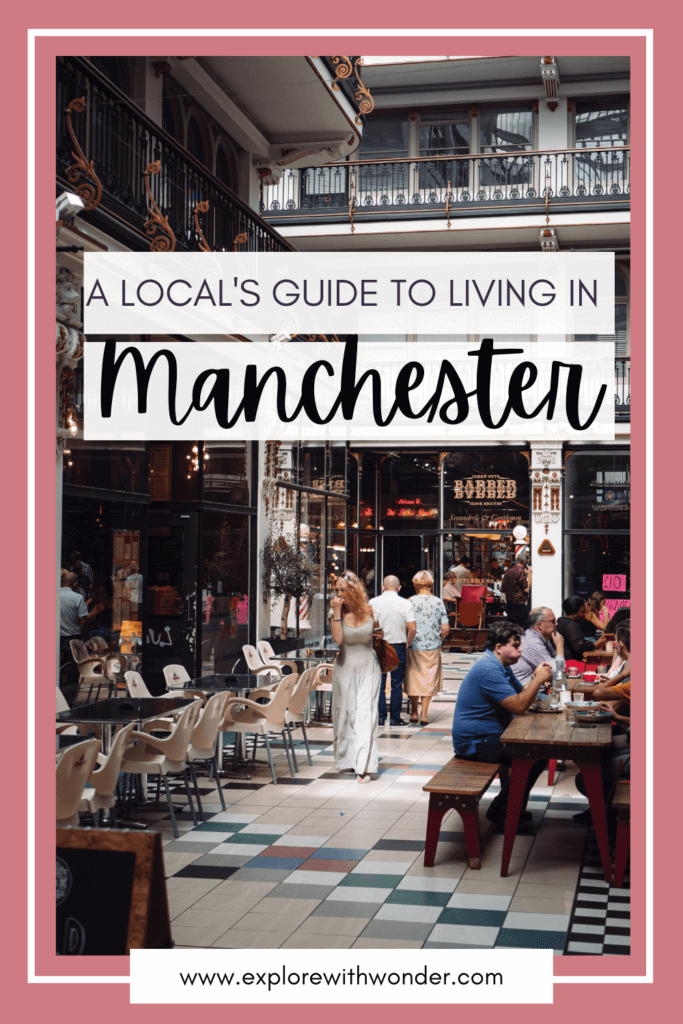
Related Reads
- How to Spend a Weekend in Manchester: The Ultimate Guide
- The 9 Best Restaurants in Ancoats, Manchester
- The 7 Best Places to Get a Hot Chocolate in Manchester
- The 8 Best Free Museums in Manchester
- 8 Best Hotels in Manchester City Centre with Swimming Pools
- How to Spend a Day in Chester: The Ultimate Itinerary
- How to Spend a Weekend in Liverpool
- One Day in Leeds: The Ultimate Itinerary
- The 15 Best Things to Do in Hebden Bridge in 2024
- What is the UK Famous for? 43 Things You Need to Know

